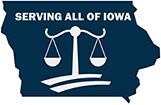Last Updated: 5/11/2023
Every state including Iowa has laws in place to protect the rights of workers when they’ve been injured on the job. These laws require all employers to carry workers’ compensation policies, which pay for medical care and lost wages when an employee is hurt at work.
But some become confused about workers' compensation and employer's liability – i.e., must an employer be liable for an injury in order to recover compensation?
In workers’ compensation cases, there is a no-fault rule that eliminates the need to prove that your employer caused your work-related accident, injury or illness. If your condition is a direct result of your work duties or related to an incident that occurred while performing your job, you are entitled to recover benefits under workers' compensation laws.
Can I file a lawsuit if my employer was negligent?
Generally, no, you cannot file a lawsuit against an employer, even if the employer was negligent and caused your injuries. Workers' compensation not only protects workers by ensuring they have benefits available to them in the event of an injury, but also protects employers from liability in most cases.
The exception to this rule may be if the employer intentionally caused the injury. But this is rare and can be difficult to prove, so in most cases, you cannot file a lawsuit against your employer.
What if somebody else was negligent? Can I still get workers' comp?
Yes, if another party other than your employer or a co-worker caused your injury, you may recover workers' compensation benefits, provided that the injury occurred during the scope of your employment.
So if you were in a car accident on the way to work, this generally is not considered in the scope of your employment, and you would be unlikely to qualify for workers' compensation. You could pursue a liability claim against the other driver, though, if that driver caused your wreck, if you can prove liability.
But if you were in a car accident while running errands for your employer, then you may be entitled to workers' compensation whether you were at fault or not. And if the other party was liable for your accident, you may also be able to pursue a third-party liability claim in addition to workers' compensation benefits; but you'll have to prove the other party's liability. Review how these cases affect each other with your lawyer.
What Does Workers’ Compensation Cover?
Workers’ compensation coverage is designed to pay for medical bills related to your injury. This may include examinations, tests such as X-rays or MRIs, prescription medications, therapy services or follow-up visits. Workers’ compensation benefits also pay for reasonable mileage reimbursement for your traveling requirements to receive care.
You are also entitled to disability benefits. There are several types of disability benefits for which you may be eligible depending on the circumstances of your case, so consult a lawyer about the types and amount of damages you may recover.
Walker, Billingsley & Bair Can Help with Workers’ Compensation Cases
Walker, Billingsley & Bair is dedicated to helping workers obtain fair workers' compensation and settlements for work-related injuries or illnesses. We understand the laws surrounding workers’ compensation claims and we can help you navigate the complex claims process. Especially in cases where a partial or total disability is the result of the work-related accident or illness, it is essential that your rights are protected and that you receive the type of compensation to which you are entitled.
Call us today at (888) 435-9886 to set up a free consultation to discuss your case with an attorney.


